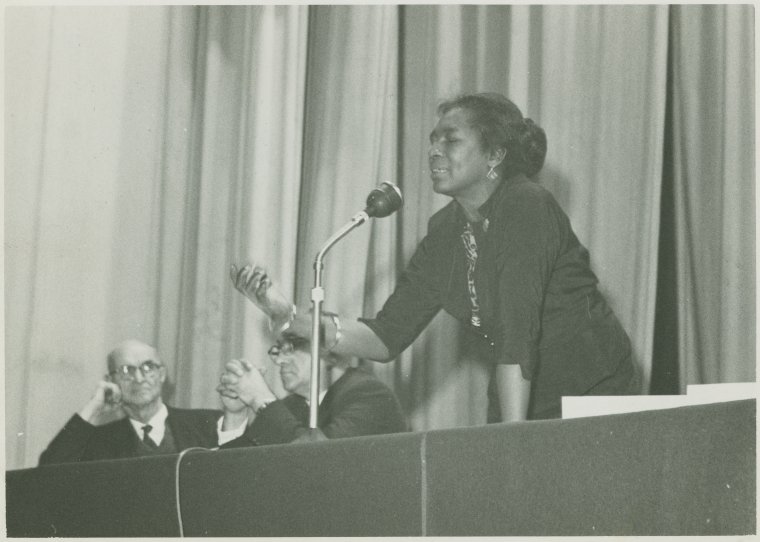My first book, Solidarity of Strangers: Feminism After Identity Politics, came out in 1996. The unfortunate subtitle—identity politics is still with us, for better or worse—is only one of the many things I’d change if I were writing the book today. I wouldn’t change the argument that identity doesn’t determine politics. As is now widely recognized, people sharing ascribed identities have profound political disagreements. Nor would I change the definition of reflective solidarity that I developed as an alternative to conventional and affective solidarities: “the mutual expectation of a responsible orientation toward relationship.” Reflective solidarity still seems like a morally defensible approach to social ties, especially when differentiated in terms of the contexts within which one appeals to others for solidarity, as I explore in the book.
What I would change is the abstraction that lets me make general claims about law, democracy, inclusion, recognition and the like. In a work that aimed to contribute to political theory, politics is missing. Solidarity appears as a social rather than a political value linked to struggles for power.
Mie Inouye also treats solidarity as a social value. She admires the “social endurance” cultivated by the Mormon church even as she criticizes its hierarchical vision of unity and permanence. Her emphases on epistemic humility, understanding where people are coming from, and the value of conflict treat solidarity as a matter of interpersonal relationships, dependent on individual attitudes and the willingness to tolerate a little discomfort. With examples from religion and diversity, equity, and inclusion (DEI) best practices (my term, not Inouye’s), solidarity appears as the social texture of community.
Politics emerges from gaps and frays in this texture. The gaps expose fundamental divisions: the social world is not a solidary whole. It consists of entrenched patterns of coercion, exploitation, and violence. Some of us feel compelled to join a side in the struggle over these divisions. Discipline, courage, and unity are necessary if we are to win. Those who are fighting for the other side, for a fundamentally opposed vision of the world, are excluded from our side. That’s what being on the other side means.
What, then, if we emphasize not social but political endurance as a critical component of left politics? Inouye’s posing of the question of commitment in a society fragmented by forty years of neoliberal capitalism pinpoints a key challenge we face on the left: how to organize for enduring political struggle on a rapidly overheating planet wrought by imperialism and oppression.
The basic menu of forms of political organization includes electoral parties and coalitions, movements, issue-based campaigns, NGOs, agitational groups, and revolutionary organizations. These different forms have varying levels of capacity and viability, generally dependent on the ability to command resources (whether these resources involve money, people, or attention). Obviously, not every political organization aims to overthrow the existing political economic system. Most seek to make changes within the existing system.
Enduring over the long haul is particularly challenging for movements and radical political associations. Movements ebb and flow; the spontaneity that generates enthusiasm resists channeling into routines and institutions. Radical politics demands enormous commitment; even the most dedicated organizers burn out. Revolutionaries face repression from the state, police harassment, and legal persecution.
To these challenges we should add the unique problems that arise from social media: argument without accountability, the seduction of the viral hot take, and the brutal pleasures that accrue from demonstrating others’ weaknesses. The reflexes honed online are ill-suited to the patient, focused, and mundane work of politics—making placards, doing follow-up calls, arranging events, finding a meeting time and location, distributing fliers, and so on. People who are intellectually or affectively attracted by revolutionary ideals may lack the disposition for sustained organizational labor.
When left politics looks like movement without results, whether as fiercely ineffectual online debates or as inspiring mass demonstrations that end with the election and reelection of the same old incumbents, it’s hard to feel that showing up makes a difference. In some of the 2020 protests I joined, after hours of marches, chants, and standoffs with the police, organizers would thank the crowd for coming out and remind us to vote. If voting was the answer, why did we spend the past seven hours pressed against barricades in front of the police station?
Real material factors such as working two jobs, caring for friends and family, trying to get through school, wariness of encountering the police, and basic transportation make a difference in a large country with sprawling cities and decaying infrastructure. Time is precious. Part of the challenge of political endurance is providing people with the sense that organizing is worth their time. People show up when they think showing up matters.
In her indispensable The Romance of American Communism (1977), Vivian Gornick recounts a story that a woman named Belle told about her seventy-year-old father. One snowy night, although bone tired, he got ready to go back out into the cold to attend a rally at Madison Square Garden. Belle tried to convince him to stay home. Her father’s response: “If I don’t go, who will be there?” A committed member of the Communist Party, he believed in showing up. He didn’t think, “Oh well, there will be so many people there, one more won’t make a difference,” or “It’s just another rally, so what.” His party, his comrades, expected him to show up, and he expected this of himself.
Political endurance is strengthened by purpose and practice. Strong political organizations give people a reason to show up. They explain what they are fighting against and what they are fighting for. They clarify why the fight matters. The Communist Party in its heyday was enormously skilled at drawing the connections between specific issues and the long-term fight for socialism. Claudia Jones’s famous International Women’s Day speech from 1950 is a great example. She linked present struggles of progressive and Communist women with the traditions of the great antislavery fighters Harriet Tubman and Sojourner Truth, the militant textile workers of 1848, and women’s rights pioneers Susan B. Anthony and Elizabeth Cady Stanton. Jones didn’t worry about the differences between them. She drew a centuries-long arc of courage and commitment. The immediate political goal was unity. The fight was for peace, equality, and liberation which depended on organizing Black and white women in the struggle for socialism. Jones embraced her listeners with world-historical purpose. Everyone counts in the battle against the H-bomb, fascism, and imperialism.
The challenge of political endurance on the left today is that people don’t know what they are fighting for. In recent decades, millions of people in the United States have come out to protest what they’re against—the World Trade Organization, the Iraq War, Wall Street, racist police murder. The movements weaken as they fail to give shape to a vision of what they’re for—what does winning look like? The advantage of organizations like the old Communist Party is that they articulated such a vision: every local struggle and specific issue gets its energy and purpose from the broader communist horizon.
Correct practice is essential to political endurance. These days the jargon in left organizing spaces is indistinguishable from corporate human resource departments. Disagreements are treated as identity differences. Preoccupation with interpersonal conflicts and individual discomfort displaces attention away from political work. Political organizations that orient their practices around their goals—that make clear that people have joined a political struggle that requires discipline and unity (not a social club)—navigate interpersonal issues by linking action to purpose. The old Communist parties called this practice democratic centralism. Comrades debate, vote, and accept the decision of the majority. Because keeping everyone together is so important, debate is conducted with an eye to generating unity—not scoring points, blowing off steam, or demonstrating one’s knowledge of theoretical arcana.
Times have changed. We live in the shadow of the defeat of twentieth-century communism. Perhaps that’s why churches and DEI best practices, ethics and economics, have eclipsed the party in our political imaginary—they reflect the world we’re in. To avoid repeating the assumptions of defeat, we should learn from the purpose and practice of another time, a time when people recognized that political struggle required dedication and commitment. This can inspire us to build again the political form whose absence shapes our present: the revolutionary party. If we believe our own analyses of exploitation, oppression, and inequality, anything less is giving up.








